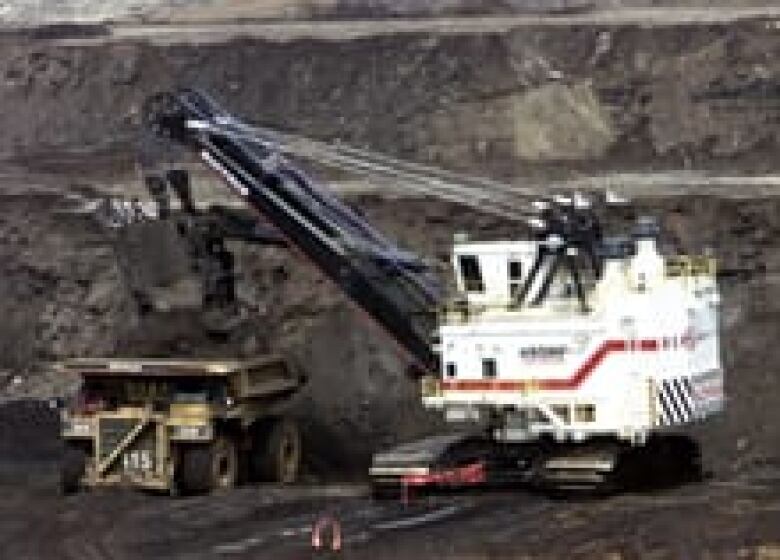Anti-oilsands ads target Alberta tourism
Alberta travel industry 'disappointed,' not overly worried by campaign

A U.S. group has unveiled billboards urging Americans to reconsider their travel plans to Alberta because of the province's oilsands projects.
Corporate Ethics Internationallaunched billboards in four U.S. cities Wednesday thatcompare Alberta's oilsands to the environmental disaster caused by the BP oil spill in the Gulf of Mexico.
"We're just trying to create pressure that motivates the Alberta government to come to the table to talk to these groups about a solution," said Michael Marx, executive director of the group.
The billboards were placed in Portland, Ore., Denver, Seattle and Minneapolis, four centres thatgenerate many U.S. visitors to Alberta.
'We want Alberta and Canada to quit interfering in our efforts in the United States to end our addiction to oil.' Michael Marx, Corporate Ethics International
CEI is alsotargeting potential visitors on the internet by posting ads thatwill pop up when anyone does a Google search for an Alberta destination.
"We're running flash and banner ads on major tourist websites, which start with images of Banff and then morph into images of the tarsands," Marx told CBC News.
He said thegroup is part of a coalition of about 100 environmental and non-government organizations from the U.S., Europe and Canada. A similar campaign will be launched in the U.K. in two weeks.
The group is critical of the environmental damage caused by oilsands production. But Marx said it's also upset over the Alberta and Canadian governments' role in promoting carbon-based fuels. He says paid lobbyists in Washington have fought to stop the adoption of low carbon fuel standards in the U.S.
"We want Alberta and Canada to quit interfering in our efforts in the United States to end our addiction to oil and transition to a clean energy economy."
Campaign disappointstourism agency
Alberta Premier Ed Stelmach responded to the adsby inviting people to come see the province especially Fort McMurray and the northern region around the oilsands for themselves.
"When they come here and see for themselves, obviously they'll have a completely different picture when they see it in person, as opposed to some of the propaganda that they're trying to put on the billboard," he said.
Travel Alberta, which promotes tourism, says it's disappointed with the campaign, but not overly worried.

"We've seen similar attempts by activists to tie the tourist industry into political issues, but we have not seen any significant effect in past efforts. It remains to be seen what happens here," said Don Boynton,Travel Alberta's executive director of communications.
He pointed out Alberta hosts 1.5 million international visitors a year and the industry employs 100,000 people.
Boynton saidhis main concern is that Alberta is being portrayed in"an inaccurate light."
"We have a very strong record of environmental protection and having destinations and experiences in protected areas that is the envy of the world," he added.
But Marx disagreed. He believes Alberta is at risk of becoming an international environmental pariah.
"The government of Alberta really needs to take its head out of the sand and look around and realize that there are all of these NGOs in Europe, in Canada, in the United States who are coming together in an unprecedented way to challenge the expansion of the tarsands."












_(720p).jpg)


 OFFICIAL HD MUSIC VIDEO.jpg)
.jpg)



























































































